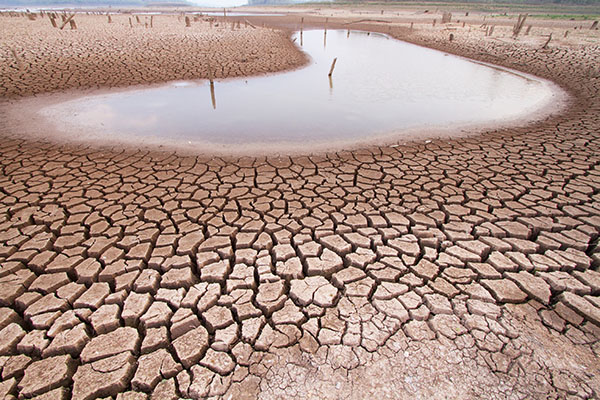
Contrary to what a news outlet is arguing, poor resource management – not so-called "climate change" – is to blame for water shortages in Nigeria.
An article by AfricaNews (AN) written in cooperation with the Associated Press and published on Monday, May 12, pointed to climate change as the culprit. The piece highlighted the worsening drought conditions experienced by farmers in the country's northern region, alongside their challenges in securing water for their crops. Rivers and lakes that once sustained agriculture are drying up, forcing smallholder farmers to rely on costly groundwater extraction.
The AN report framed the crisis as a direct consequence of global warming, citing shrinking water bodies and declining crop yields. It interviewed two farmers, Nasiru Bello and Umoru Muazu, who recounted the hardships of relying on dwindling groundwater. "All these things are a result of climate change," Bello told the outlet. (Related: Reuters blames CLIMATE CHANGE for Christmas Day massacre of Christians by Muslims in Nigeria.)
While climate change is widely blamed for the crisis, Linnea Lueken – a research fellow with the Heartland Institute's Arthur B. Robinson Center on Climate and Environmental Policy – begged to differ. In a May 13 piece published on Climate Realism, she pointed out that human mismanagement was the primary driver of the region's water shortages.
Nigeria's farming boom defies climate alarmism
Lueken cited historical data and environmental realities, which the AN article conveniently omits, to back up her points. Nigeria has endured cyclical droughts for over a century, with severe dry spells recorded in the 1910s, 1940s and 1970s – long before modern climate change discourse. The current water crisis coincides with explosive population growth, unsustainable farming practices and large-scale deforestation, all of which exacerbate the effects of natural drought.
Lake Chad, which according to AN has shrunk by 90 percent since the 1970s, had been starved of water due to upstream damming and diversion by neighboring countries. Deforestation in the northwestern Sokoto state was driven by rapidly expanding agriculture, not due to "desertification" as the piece claims.
Lueken also rebutted claims that the drought caused by "climate change" is impacting Nigeria's agriculture. Data from the United Nations Food and Agriculture Organization (FAO) shows the country's corn production surging by 91 percent between 1990 and 2023, despite recent dips. Nigeria's GDP continues to grow at three percent annually, buoyed by oil exports – an industry often vilified by climate activists.
Ultimately, the research fellow concluded that "mismanagement of the land amid a booming population can quickly destabilize what resources the nation has." As Nigeria's population hurtles toward 400 million by 2050, the strain on water and arable land will only intensify without sustainable policies.
While climate-smart agriculture is touted as a solution, the immediate need is for better land and water management. The Nigerian government has tasked research institutes with developing adaptive strategies, but farmers like Bello and Muazu cannot wait. Instead of pointing fingers at "climate change," proper resource management would be of much help.
Visit ClimateAlarmism.news for more similar stories.
Watch this video that outlines the effects of drought on crops and livestock.
This video is from the Grand Solar Minimum Solutions channel on Brighteon.com.
More related stories:
Twelve million Africans suffering through worst drought in 60 years.
Major rivers all around the world experiencing drought at the same time: WHY?
Governments wasting TRILLIONS on "climate change" using faulty temperature data, experts warn.
Sources include:
Expose-News.com
AfricaNews.com
ClimateRealism.com
Brighteon.com
Source link

